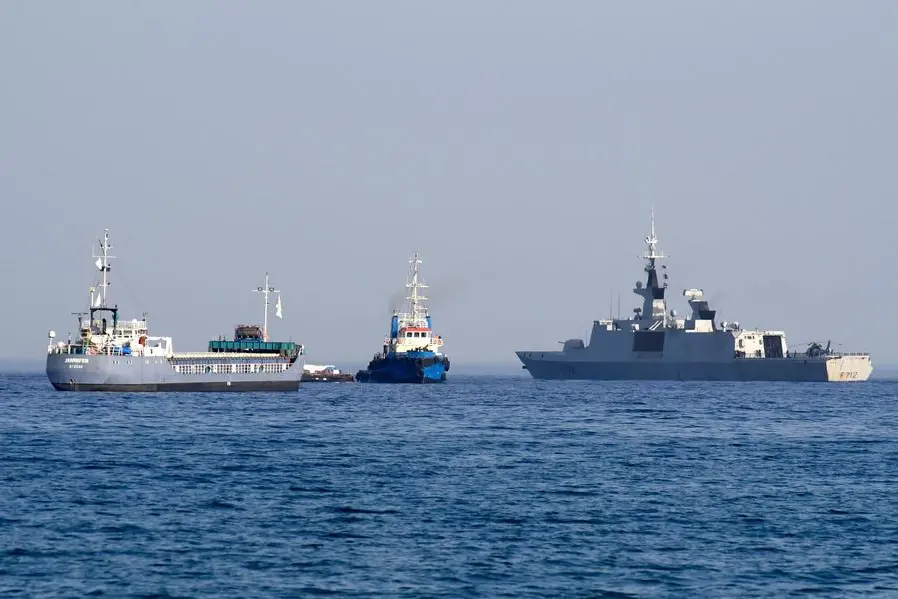PHOTO
Cyprus vowed Tuesday to maintain its Gaza maritime aid corridor despite the killing in an Israeli strike of seven aid workers unloading the humanitarian assistance in the war-ravaged Palestinian territory.
"The tragic events should not discourage us. We must double down on our efforts to provide more assistance as the needs dramatically escalate", said Cypriot President Nikos Christodoulides at an aid coordination centre in the port city of Larnaca.
Earlier, government spokesman Konstantinos Letymbiotis told reporters the deadly strike would not affect the initiative, but that "re-coordination will need to take place" due to security concerns.
The seven workers from the World Central Kitchen (WCK) charity were killed Monday by what the US-based group called a "targeted strike" while they were leaving a warehouse having unloaded aid delivered by ship.
WCK said it had immediately paused its operations in Gaza.
Israeli Prime Minister Benjamin Netanyahu admitted an "unintentional" strike and said there would be an investigation.
Several countries, including the United States and Britain, condemned the strike.
By far the closest European Union member to the Gaza Strip, at around 360 kilometres (220 miles) to its north, Cyprus had pushed for several months to get the aid corridor underway.
The first vessel, organised by the Spanish charity Open Arms and WCK, successfully delivered its cargo to Gaza on March 15 while the second, the Jennifer, arrived on Monday.
Tracking website Vesselfinder.com showed the craft returning to Cyprus on Tuesday.
Christodoulides said on Monday that preparations were underway for a third voyage and that Cyprus was coordinating with the United States, which has sent military engineers to build a port in Gaza to facilitate aid deliveries.
Several countries have resorted meanwhile to airdropping aid into largely cut-off northern Gaza, where the United Nations says famine is looming.
Aid groups have been critical, however, saying that airdrops and maritime deliveries cannot make up for the lack of aid being delivered overland, which is at a fraction of its pre-war levels according to the UN.
Christodoulides appeared to address those concerns, saying in Larnaca that the corridor was "not a substitute to other routes, namely the all-important land routes and the air drops. It is complementary to them".
Speaking alongside Christodoulides, Roberta Metsola, the president of the European Parliament, called for an end to "hostilities" and said: "We must use all resources to get answers, to bring in more relief, and organisations like World Central Kitchen must be protected."





















